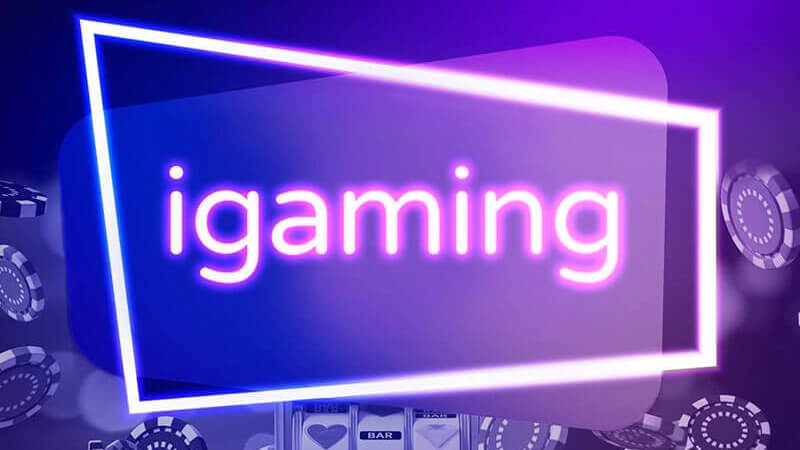It is now simple to play online casino games or engage in other gambling opportunities. Usually, you have to download an app or visit a website, sign up, deposit cash, and start placing your bets. Because of the suitability, we experience these days, it makes it easy to forget that things were different a few years ago.
Before the end of the 1990s, if you loved playing casino games such as slot, card games, or roulette, you had to do it physically. People used to travel far, including visiting other countries. The process was expensive and wasted a lot of time.
The iGaming industry changed casino games, sports gaming, and poker, in the same way, eCommerce sites such as Amazon forever revolutionized the way we purchase stuff.
What is iGaming?
Here we say the ‘i’ in iGaming stands for internet. iGaming involves online betting via electronic means. But if we just say that iGaming is assembly a bet using the internet, then it similarly falls into the wider perception of gambling, which, in turn, covers a complete variety of games, such as casinos, sports betting, sweepstakes, lottery, bingo, and card games.
If we use the term “iGaming” broadly, we mean an industry that spans multiple online verticals and the diverse entities in these verticals. Remarkably, here and now we even have different courses to study and certify in the iGaming industry, as the following video explains.
For instance, a corporation that develops games software for online casinos is part of the wide-ranging iGaming market. Correspondingly, a gambling software platforms developer falls into the category of iGaming software suppliers.
In contrast to games of chance, the result of which is powerfully influenced by RNG or fortune, there are so-called games of skill.
The former includes online casinos, online sports betting, sweepstakes, online lotteries, bingo, fantasy sports, and eSports. The latter consists of card games (poker, blackjack, bridge, etc.), as well as chess, backgammon, and other games in which the outcome depends more on the mental skill of the player than on chance.
There is some lack of simplicity in the iGaming industry about whether games of skill should be involved into the broader definition; you will certainly meet both parties at iGaming events! 🙂
iGaming definition
The starting point of iGaming
It was not authorized to use websites for business reasons at the beginning of the internet. Likewise, it was impractical because encrypted protocols such as HTTPS had not yet been developed.
The situation started to change in 1994 when Netscape Navigator created safety requirements that made credit and debit card transfers secure to transact online. At the end of the year, a practical approach to the development of the iGaming industry was taken.

In 1994 the government of the Caribbean nation of Antigua and Barbuda adopted the Free Trade & Processing Zone Act, which allowed the issuance of licenses to companies aimed at opening an online casino. Antigua and Barbuda approved the Free Trade and Processing Act, allowing corporations enrolled on its shores to keep operating online casinos worldwide. The following year, Microsoft released Windows 95, and clients rushed to buy computers and access the internet.
Following the Superiority of iGaming Business, companies started to expand their services over the next few years. It resulted in new games, improved graphics, added features, and enhanced user-friendliness in their live casino software.
iGaming – timeline
Here is a timeline of the major milestones in the history of iGaming:
- 1994: The first online casino, Gaming Club, is launched, offering players the opportunity to play classic casino games such as slots, blackjack, and roulette.
- 1996: The Kahnawake Gaming Commission is established as the first regulatory body for online gaming.
- 1998: Online poker is introduced, with the launch of Planet Poker.
- 2003: The first live-dealer online casino games are introduced, featuring human dealers whom players can interact with in real-time.
- 2004: Microgaming releases the first mobile casino game.
- 2006: The Unlawful Internet Gambling Enforcement Act is signed into law in the United States, effectively making online gambling illegal in the country.
- 2010: The first virtual reality casino is launched, offering players a fully immersive gaming experience.
- 2011: The US Department of Justice changes its stance on online gambling, allowing individual states to legalize and regulate online gambling within their borders.
- 2012: The first Bitcoin-based online casino is launched, with all transactions conducted in cryptocurrency.
- 2014: The first online sports betting exchange is launched in the United States, allowing sports bettors to set and accept each other’s wagers.
- 2018: The Supreme Court of the United States strikes down the Professional and Amateur Sports Protection Act, paving the way for states to legalize sports betting.
- 2020: In late 2019, with the COVID-19 pandemic forcing the closure of land-based casinos around the world, online gambling experienced a surge in popularity, with many operators reporting record numbers of new users and revenues.
Getting mobile
The next big step forward happened in the late 2000s and early 2010s when consumers rushed to get smartphones, mirroring what had happened with desktops a decade before. iGaming companies used the opportunity and started creating apps to help their customers to enjoy their games on the go.
Almost every iGaming brand now has an app for its clients to make everything simple and faster. While giving a mobile experience is not a unique selling point, businesses can compete by providing the highest quality app.
Emerging trends
Across its history, the sector has sought to innovate by adding new technologies, games, and modes of play. Today is no exception; iGaming companies are constantly improving their casino offerings by creating new ways for their clients to play. The most significant growth has been the live dealer game in the current years. It makes the most interactive online casino encounter presently offered by showcasing a live video feed of a human dealer who engages with gamers and controls the game rather than a computer doing so.
Similarly, many have developed exclusive games like Blazing Bandito to separate themselves from competitors. Other current advancements include routine and gradual jackpots, which contribute to the addition of new trends to casino games.
The iGaming company’s fate
With over two decades of experience integrating emerging innovations to provide new methods for their customers to play classical casino games, it is right to conclude that the iGaming events are built on an innovative culture.
- Suggested read: How does technology motivate iGaming?
As a result, we can foresee iGaming companies maintaining on top of new growth in technology, embracing and trying new ideas. Recently, we have seen this with some companies developing virtual reality editions of their games. It allows players to move their heads around as if they were in a real casino.
It is unknown whether mainstream consumers will adopt VR technology or stay a niche product. Irrespective, iGaming companies have embraced it quickly, illustrating their spirit of innovation and desire to explore things.
Challenges of the iGaming industry
Despite its growth, iGaming has encountered many challenges. Apart from planning out how to get around harsh legal policies, online gaming companies had more on their plates.
Because of the increased demand, the iGaming industry is now congested with online games. As a result, businesses must provide a generous and innovative incentive to capture the attention of new players.
If you’re interested to learn more about the challenges, here you can find some useful information about the PROS & CONS of starting an online casino.
Final thoughts
iGaming, short for “Internet Gaming,” refers to the wide range of online gaming activities that encompass betting, casino games, poker, sports betting, and other forms of gambling, as well as games of skill, such as esports.

iGaming can be broadly categorized into several subsectors, each offering unique experiences and opportunities for players. Many countries are considering to the trend as it becomes one of the most valuable industries. Moreover, as the iGaming industry continues to grow and evolve, several trends and opportunities are emerging that could shape its future trajectory:
- Expansion of legalized iGaming markets.
- Continued technological innovation.
- Greater focus on responsible gaming.
- Increased mergers and acquisitions.
In a progressively connected world, iGaming is poised to continue at the forefront of the gaming landscape, shaping the future of entertainment and leisure.
iGaming – LeylaJ magazine





